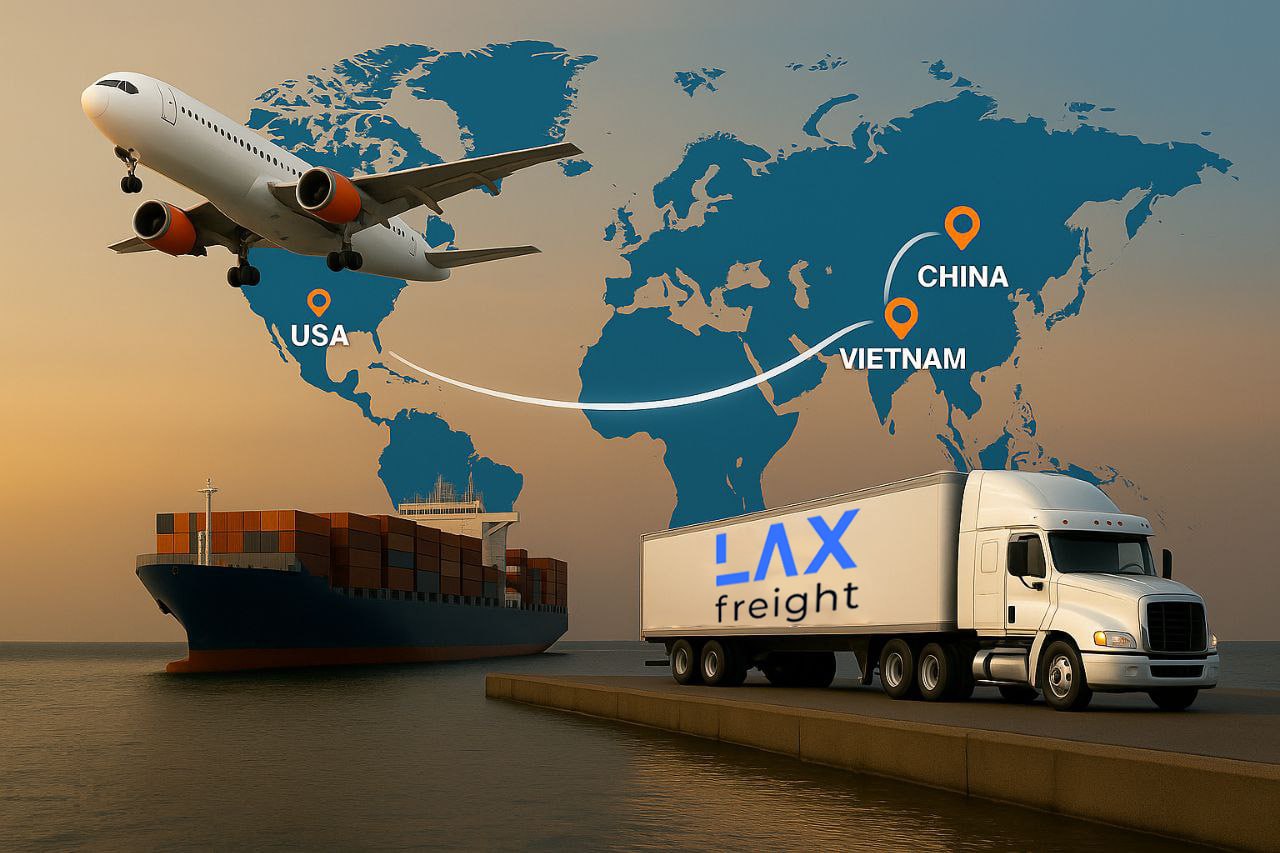Logistics and supply chain management can be consuming tasks in time and costs. Third-party logistics (3PL) providers handle supply chain aspects of your business. Their infrastructure and access to technologies can help to improve operational efficiency, reduce costs or provide a possibility to focus on main activities of your business. We review the roles and differences of 3PL types, providing service, and their possible importance for businesses.
What is a 3PL?
As for the definition of 3PL, it’s a service provider that handles the supply chain processes. Its service involves warehousing management, transportation, distribution, and order fulfillment. 3PL companies also provide access to their infrastructure and technologies to facilitate your logistics operations.
Specifically, these companies are intermediaries between manufacturers and customers. This position often includes a wide range of logistics aspects, as supply chain optimization or the use of technology for smooth operations.
What does a 3PL do?
Third-party logistics services cover many functions crucial for steady and smooth goods flows from suppliers to customers. In general, 3PL companies have several main responsibilities.
- Supply chain management. The core of third-party logistics operations is management of the supply chain processes. It includes handling the whole delivery process, from production to distribution and delivery. 3PL freight providers may use strategies to streamline these processes, minimize costs and enhance overall efficiency.
- Warehousing and distribution. 3PL manages storage and inventory movement, including receiving, storing, packing and shipping the goods.
- Transportation management. Third-party logistics providers ensure timely delivery with reduced transit time and costs amid their expertise and partnerships with carriers.
- Order fulfillment. A 3PL company also handles every stage of processing and delivering orders, from order placement to delivery confirmation. In particular, 3PL manages order picking, labeling, and shipping.
- Inventory management. 3PL companies also implement such aspects, as stock levels monitoring, stockouts prevention and allocation optimization. Maintaining optimal inventory levels are vital for businesses to reduce carrying costs, ensure product availability, and adapt to market conditions.
- Value-added services. In addition to logistics aspects, 3PL companies can propose additional aspects for specific requirements of businesses. It may include product customization, assembly, packaging, quality inspections, and reverse logistics.
Differences of 3PL and 4PL
In the logistic industry, a 3PL and a 4PL sometimes are interchangeable terms. Still, they represent different models. As we mentioned, third-party logistics providers are intermediaries between producers and customers and offer logistics services. They usually focused on specific aspects of the supply chain.
At the same time, fourth-party logistics companies are more integrated within a client’s supply chain and manage the entire supply chain. They’re a single company that oversees several 3PLs and other services providers to optimize the end-to-end shipping process.
Scope of services
3PLs provide logistics services, proposing a range from warehousing management to transportation, while 4PLs have a wider range of services, including supply chain design and optimization.
Integration and coordination
In contrast to third-party logistics, 4PLs have more integration with a client’s supply chain. They can coordinate several 3PLs and serve as an extension of the business’s operations.
Customer communications
As the 4PL coordinates 3PLs, it also filters all communication to the different 3PLs. This can lead to delays, as the 4PL acts as a middleman during the process. With a 3PL partner, you have faster access to and cooperation with a third-party logistics team.
Choosing the suitable option
Deciding which model your business needs depends on several factors, such as the supply chain complexity and the needed integration level. If you need tactical support for specific logistics functions, you can choose a 3PL. However, if your request achieves greater supply chain visibility and strategic alignment, you should partner with a 4PL.
While both a 3PL and a 4PL offer important services for the logistics sector, they differ in scope, integration, and strategic focus. Understanding their differences allows you to choose the right model to support and improve your business operations.
3PL vs. Freight Forwarding
The other term a 3PL can be confused with is freight forwarding. Both entities have different functions and serve various aspects of the supply chain. Specifically, freight forward is focused on cargo transportation. Providers of this service are intermediaries between shippers and carriers. They coordinate shipping, including such aspects as cargo space booking, transportation arranging, and documentation preparing.
Scope of services
3PLs can offer warehousing management and order fulfillment in addition to transportation services. Freight forwarders focus more on facilitating the shipment.
Service focus
3PLs offers end-to-end logistics solutions for the supply chain, while Freight Forward focuses on arranging transportation and related services.
Customer relations
Third party logistics companies usually establish long-term partnerships with their clients and offer constant guidance and logistics support. Freight forwarders are transactional service providers. They handle individual shipments on a per-need basis.
As in the case of choosing between a 3PL and a 4PL, you should consider the logistic needs and objectives of your business. Freight forwarding may help to improve transportation management and logistics coordination.
What are the types of 3PL providers?
3PLs are divided by types, each of them satisfies specific logistics requirements. Knowing their functions and specifics, you can choose a necessary service for you, whether you need brokerage service, supply chain handling, or hazardous shipments management.
There are such types as lead logistics providers (LLPs), asset-based 3LPs, non-asset-based 3PLs, and specialized 3PLs.
| Criteria | Lead Logistics Providers | Asset-based | Non-asset-based | Specialized |
|---|---|---|---|---|
| Scope of service | End-to-end logistics services and supply chain management | Logistics services, such as transportation, distribution, and storage management | Brokerage, coordination, and logistics management | Specific aspects, such as temperature-controlled logistics or hazardous goods shipping |
| Responsibilities | Strategic coordination of the supply chain | Operation and management of logistics assets | Coordination and management of supply services through partnerships and subcontractors | Focus on specific industry or logistics challenges |
| Flexibility and stability | High flexibility to adapt to business needs | Moderate flexibility is constrained by owned assets and infrastructure | High flexibility is amid reliance on external partners | Tailored solutions for specific challenges and requirements |
What services do 3PL providers offer?
3PL companies offer services that aim at optimizing various logistics aspects. The services can be tailored to specific business needs, cost reductions, or supply chain management.
- Warehousing and storage. 3PL’s warehousing service includes the cargo storage and packaging, and inventory management. This aspect of 3PL services also may include cross-docking practices that involve products transferring from incoming to outgoing transport with minimal storage time.
- Transportation management. 3PL companies provide such services as freight management, route optimization, freight consolidation, and choosing efficient and cost-effective carriers.
- Distribution and fulfillment. 3PL services also cover receiving, processing, and delivering orders. Their main components include order processing, packing items for shipment, cargo shipping, and returns management, including restocking and processing refunds.
- Value-added services. Some third-party logistics companies provide additional services in accordance to specific customer’s needs. They include custom packaging, quality control, technology integration, etc.
- Access to technologies. Partnership with 3PLs also enables access to advanced technologies. In particular, they may utilize software to plan and optimize transportation, manage warehouses, handle order processing and fulfillment, and track shipping in real-time.
- Consulting and strategic services. 3PL companies also have such services as supply chain design, process optimization, and risk management.
Why does your business need a 3PL?
The main motivation of such partnerships is the opportunity to reduce costs through resource optimization and cost-effective solutions. Third-party logistics companies also offer implementation of industry effective practices, access to advanced technologies, and handling regulatory requirements.
The other advantage of partnership with a 3PL is a flexible and stable supply chain and the goods flow. The providers can adapt their solutions to specific requirements, market conditions, and peak seasons.
Risk management is also a crucial aspect of 3PL services. The supply chain faces risks, such as supply disruptions or high transportation costs. For these issues, third-party logistics implement diversified networks and thorough planning.
When should a business partner up with a 3PL provider?
The right time for engaging with a third-party logistics company can maximize the benefits. Several critical scenarios indicate a suitable moment for partnership with a 3PL freight provider.
Rapid business growth
During growth, businesses especially need to improve their logistics and supply chain. Scaling one’s own infrastructure can require a lot of time and costs. 3PL providers offer the needed scalability for increased volumes and ensure the absence of bottlenecks.
Expansion into new markets
Entering new markets presents significant challenges. It may involve handling unfamiliar regulations, and new custom procedures and transportation networks. In this case, third-party logistics companies can offer the expertise guiding in the target market, and smooth market entry.
Cost management
Cost management for supply chain processes can sometimes be complex. A 3PL provider can identify and implement cost-saving measures if needed. Specifically, they can implement optimized transportation routes and warehouse management to improve business profitability.
Focus on core competencies
If you seek to focus on the core business tasks, such as product development and marketing, you may find logistics management a distraction. Outsourcing to a 3PL allows you to allocate resources and attention to other business aspects.
Improving customer service
Reliable and fast supply chains are critical for customer satisfaction, while delays and poor communication may affect brand reputation. For this aspect, 3PLs enable timely and accurate order fulfillment and shipping tracking.
Risk management
Supply chain processes may face risks, such as transportation delays, regulatory changes, and market volatility. Third-party logistics companies handle such obstacles through route optimization, transportation options, and compliance management.
Conclusion
The main benefits for your business from a partnership with a 3PL company are supply chain optimization, cost reduction, and access to advanced technologies. Whether you expand into new markets or seek to improve supply chain efficiency, it can be a suitable option for you.If you want to relax and handle major aspects of your business, visit LAX Freight. We offer tailored logistics solutions that can drive your business to greater success.



